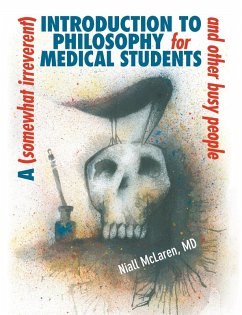In this book, you will gain a background in the following fields:
Included is a glossary explaining some of the many -isms that can be so daunting to non-philosophers because philosophers too have their jargon but it is not meant to intimidate. True, it can be complex, but the issues involved are complex. The goal of this book is to show that, with clear thinking, the complexities need not be overwhelming.
From Future Psychiatry Press www.FuturePsychiatry.com "This is one of the very few books I have every intention of reading several times in rapid succession. It is such a bounty of iconoclastic observations emanating from an in-depth acquaintance with psychiatry and a love of philosophy that no single reading can do it justice: it just keeps giving." ---Sam Vaknin, PhD, author of "Malignant Self-love: Narcissism Revisited" From Future Psychiatry Press www.FuturePsychiatry.com
Dieser Download kann aus rechtlichen Gründen nur mit Rechnungsadresse in A, B, BG, CY, CZ, D, DK, EW, E, FIN, F, GR, HR, H, IRL, I, LT, L, LR, M, NL, PL, P, R, S, SLO, SK ausgeliefert werden.









